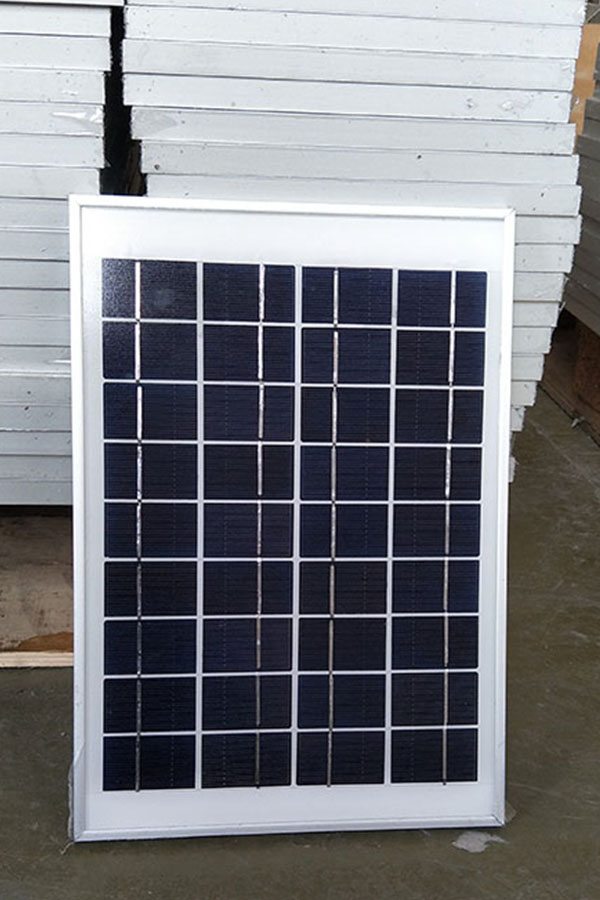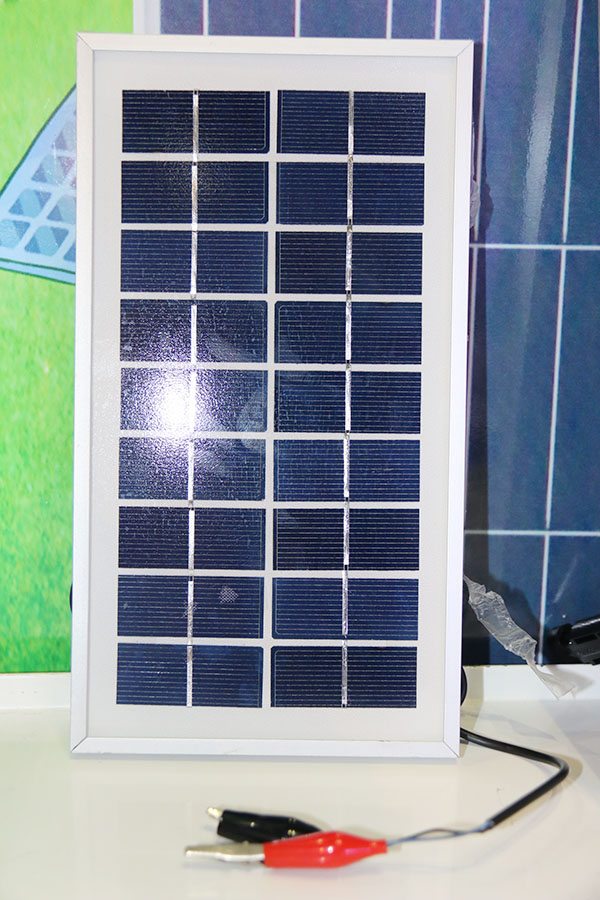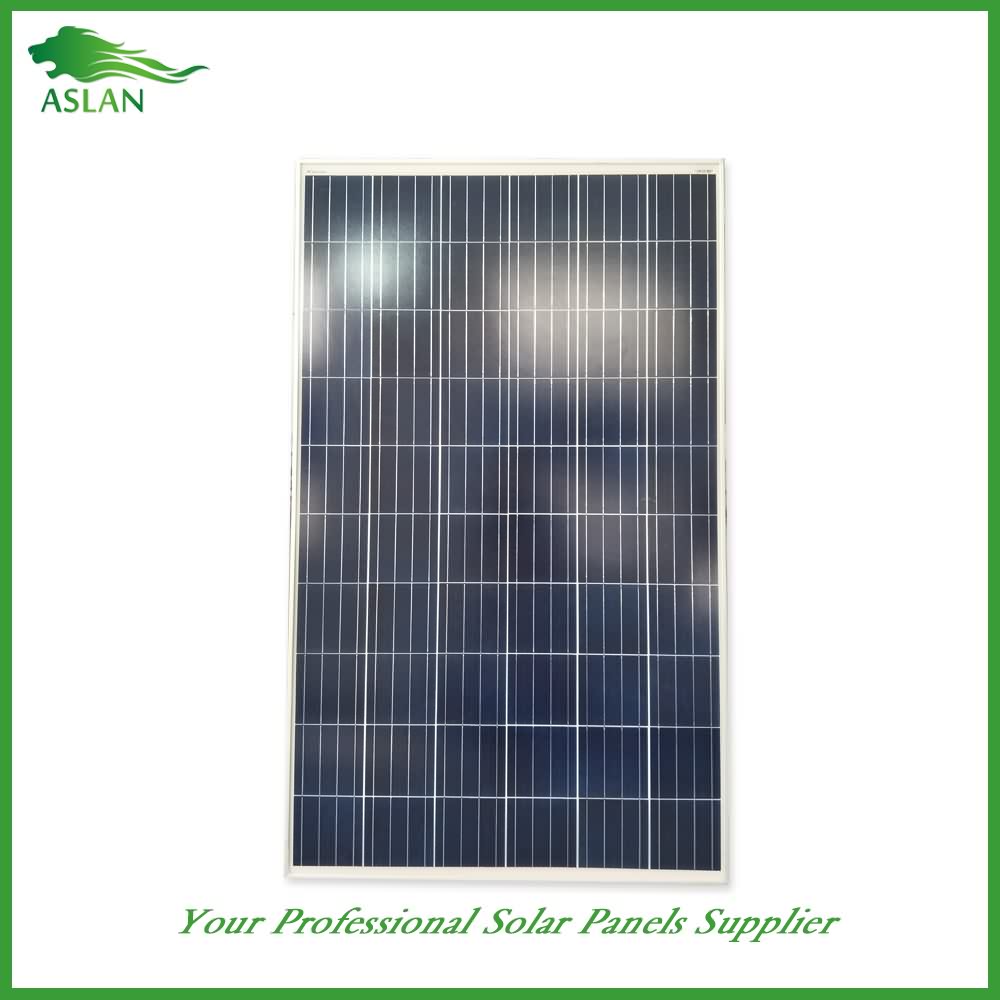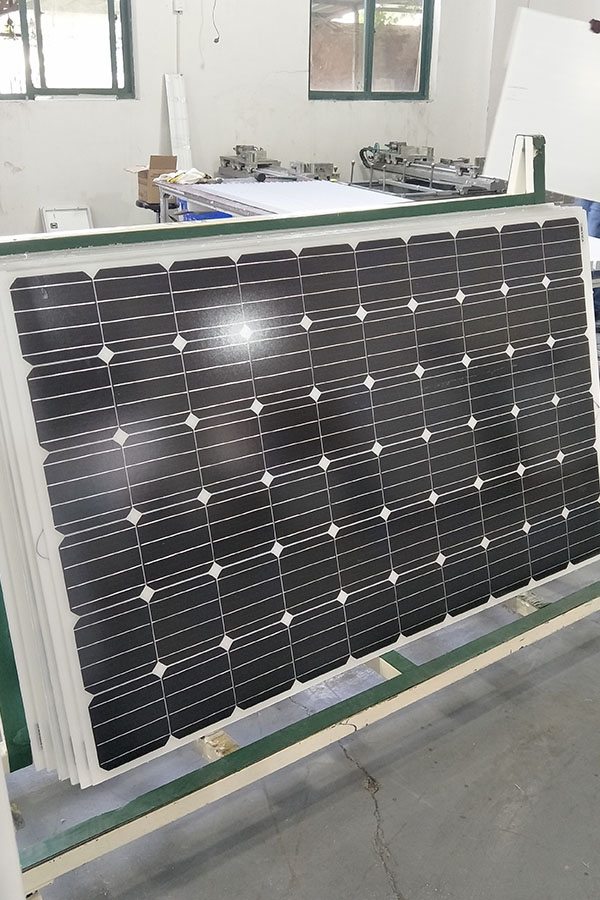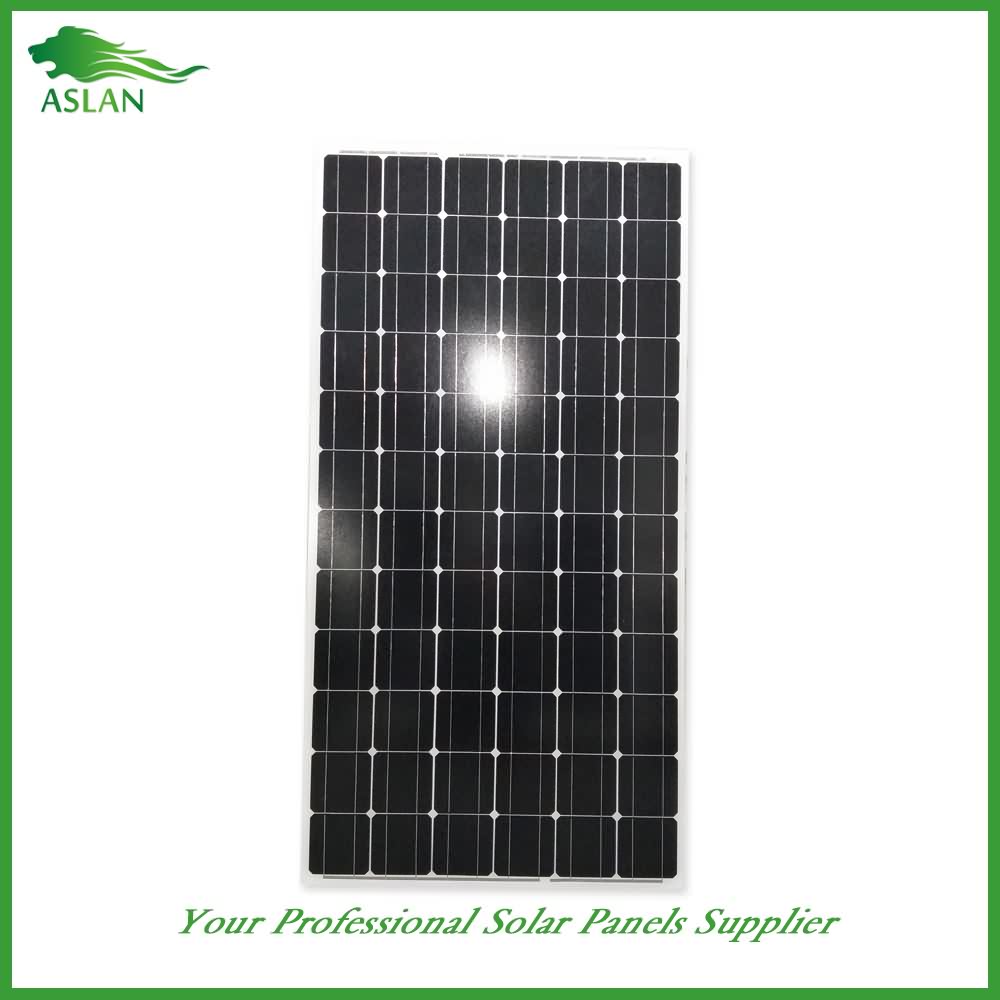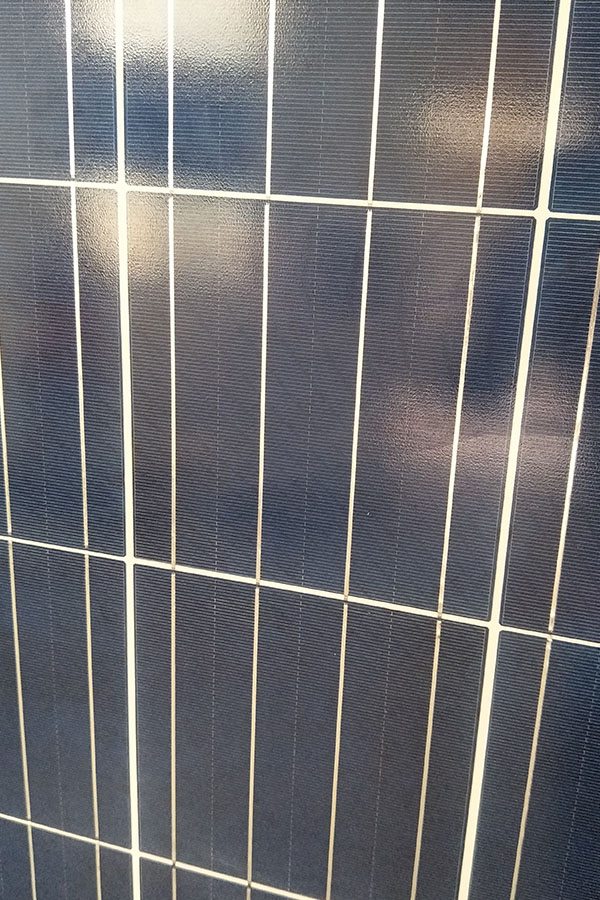26 Years Factory Poly-crystalline Solar Panel 5W Factory for Suriname
Short Description:
We enjoy a very good reputation among our customers for our excellent product quality, competitive price and the best service for 26 Years Factory Poly-crystalline Solar Panel 5W Factory for Suriname, Welcome to set up long-term relationship with us. Best Price For Good Quality in China.
Poly-crystalline Solar Panel 5W
Technical parameter
Maximum Power(W) 5W
Optimum Power Voltage(Vmp) 9V
Optimum Operating Current(Imp) 0.56A
Open Circuit Voltage(Voc) 10.8V
Short Circuit Current(Isc) 0.62A
Mechanical Characteristics
Cell Type Polycrystalline
No of Cell 18 (3x6pcs)
Dimensions 175x270x18mm
Weight 0.65KGS
Front Glass 3.2mm,High Transmission, Low Iron,Tempered Glass
Temperature and Coefficients
Operating Temperature(°C): -40°C ~ + 85°C
Maximum System Voltage: 600V(UL)/1000V(IEC) DC
Maximum Rated Current Series: 10A
Temperature Coefficients of Pmax: -0.435%
Temperature Coefficients of Voc: -0.35%
Temperature Coefficients of Isc: 0.043%
Nominal Operationg Cell Temperature (NOCT): 47+/-2°C
Materials of solar panel
1).Solar Cell——Polycrystalline solar cell 156*156mm
2).Front Glass——-3.2mm, high transmission, low iron, tempered glass
3).EVA——-excellent anti-aging EVA
4).TPT——-TPT hot seal made of flame resistance
5).Frame——anodized aluminum profile
6).Junction Box——-IP65 rated, high quality, with diode protection
Superiority: high quality anodized aluminum frame, high efficiency long life, easy installation, strong wind resistance, strong hail resistance.
Features
1. High cell efficiency with quality silicon materials for long term output stability
2. Strictly quality control ensure the stability and reliability, totally 23 QC procedures
3. High transmittance low iron tempered glass with enhanced stiffness and impact resistance
4. Both Poly-crystalline and Mono-crystalline
5. Excellent performance in harsh weather
6. Outstanding electrical performance under high temperature and low irradiance
Quality assurance testing
Thermal cycling test
Thermal shock test
Thermal/Freezing and high humidity cycling test
Electrical isolation test
Hail impact test
Mechanical, wind and twist loading test
Salt mist test
Light and water-exposure test
Moist carbon dioxide/sulphur dioxide
TUTORIAL TO BUILD SOLAR TRACKER FOR PANEL. JUST NEED 2 SERVOMOTORS, 4 PHOTOSENSITIVES RESISTANCE, AND A SERVO TESTER OR A RECEIVER, CUT THE WIRES OF POTENTIOMETER OF SERVO, ISOLATE AND REPLACE HIM, EXTEND THE 3 OTHER WIRES OUT AND CONNECT THE FIRST RESISTANCE TO THE 1ST AND 2ND WIRES, CONNECT THE SECOND RESISTANCE TO THE 2ND AND THE 3TH WIRES, HERE YOU HAVE BUILD YOUR SOLAR POTENTIOMETER, MAKE THE SAME TO 2ND, DO IT YOURSELF ALL THAT YOU THINK SUSCRIBE ON MY CHANNEL!
SUN TRACK small little TRACKER PANEL SOLAR ENERGY SIMPLE MINI SERVOMOTOR photoresistor photoresistance ARDUINO TRACKING MINI MOTEUR PANNEAU SOLAIRE FAIT MAISON SOI MEME SELF MADE HACK PAN TILT HOMEMADERR
Graphene is a material made up of single-atom thick sheets of carbon which makes graphene flexible, conductive, transparent and abundant. Currently, researchers are trying to fully incorporate graphene into thin-film solar cells due to graphene’s high conductance and transparency; however, graphene cannot hold an electrical charge as well as some other materials. As a result, scientists are coming up with new ways to process graphene sheets so that they are better suited for use in solar energy applications.
One way to improve the use of graphene in solar cells is to dope the sheets of graphene with oxygen to create graphene oxide which is less conductive but better able to hold a charge. If this technology is successfully developed and executed, it could replace the brittle and rare Indium Tin Oxide (ITO) which is a useful, but very expensive conductor. Another idea that scientists are investigating is stacking multiple sheets of graphene together to increase conductance and charge capacity. This allows less light to penetrate the surface of the solar cells but also increases the charge capacity, allowing the graphene sheets to outperform ITO.
Both of these ideas for graphene usage in solar cells demonstrate the materials science paradigm of processing a material to obtain optimal properties for the application. Our video will talk about the structure of graphene itself and how processing the graphene differently alters the structure of graphene which improves its properties and allows it to perform better in photovoltaic cells. These positive effects of graphene usage in solar cells would clearly benefit the environment by creating cheaper and more efficient solar cells.
Sources Cited in Abstract:
http://www.graphene-info.com/graphene-solar-panels
http://www.graphene-info.com/researchers-say-graphene-will-outperform-ito-solar-panel-transparent-electrode-material
References:
Introduction to solar panels, N-type and P-type semiconductors: http://www.nrel.gov/docs/legosti/old/1448.pdf, http://electronicdesign.com/power-sources/what-s-difference-between-thin-film-and-crystalline-silicon-solar-panels
Image on Page 4 based picture from: https://www.acs.org/content/acs/en/education/resources/highschool/chemmatters/past-issues/archive-2013-2014/how-a-solar-cell-works.html?cq_ck=1396892718960
Intro to current problems with solar cells: http://www.solarpoweristhefuture.com/problems-with-solar-energy.shtml
Solar cells are expensive: http://www.sigmaaldrich.com/catalog/product/aldrich/544876?lang=en®ion=US, http://energyinformative.org/best-solar-panel-monocrystalline-polycrystalline-thin-film/#thin-film-solar-cells,
Current solar panels are not efficient : http://www.solarpoweristhefuture.com/how-efficient-is-solar-energy.shtml, http://energyinformative.org/best-solar-panel-monocrystalline-polycrystalline-thin-film/#thin-film-solar-cells, http://www.mpoweruk.com/energy_efficiency.htm
Properties of Graphene: https://www.graphenea.com/pages/graphene-properties#.WO7aLNLyvb0,
Second Solution: https://phys.org/news/2013-12-graphene-sheets-effective-transparent-electrodes.html
MSE Triangle: http://www.graphenomenon.com/, https://www.scientificamerican.com/article/balancing-act/
Image Credits (in order of appearance):
https://www.extremetech.com/wp-content/uploads/2015/07/graphene-head.jpg
https://www.sciencedaily.com/releases/2016/09/160928151119.htm
https://commons.wikimedia.org/wiki/File:Illust_poly_thinfilm.gif
Custom images/animation by our team
https://brainmass.com/hubsimg/1477377/carbon.jpg
https://www.graphene-info.com/graphene-solar-panels
https://www.researchgate.net/profile/Shine_Augustine/publication/276394214/figure/fig2/AS:294624238292993@1447255300638/Figure-3-Molecular-structure-of-i-graphene-ii-graphene-oxide-Graphene-exhibits-a.png
http://www.aerogelgraphene.com/graphene-solar-panels-2/
http://daais.sinica.edu.tw/english/publication_list.php?yearId=11
https://www.graphene-info.com/graphene-solar-panels
http://www.industrialheating.com/ext/resources/Issues/Issues2/2017/Jan/ih0117_mct_fig1-900.jpg
https://s-media-cache-ak0.pinimg.com/originals/f7/76/be/f776bef5ea60f056da26d4204bcc8cc1.jpg
https://www.sciencedaily.com/releases/2016/09/160928151119.htm
